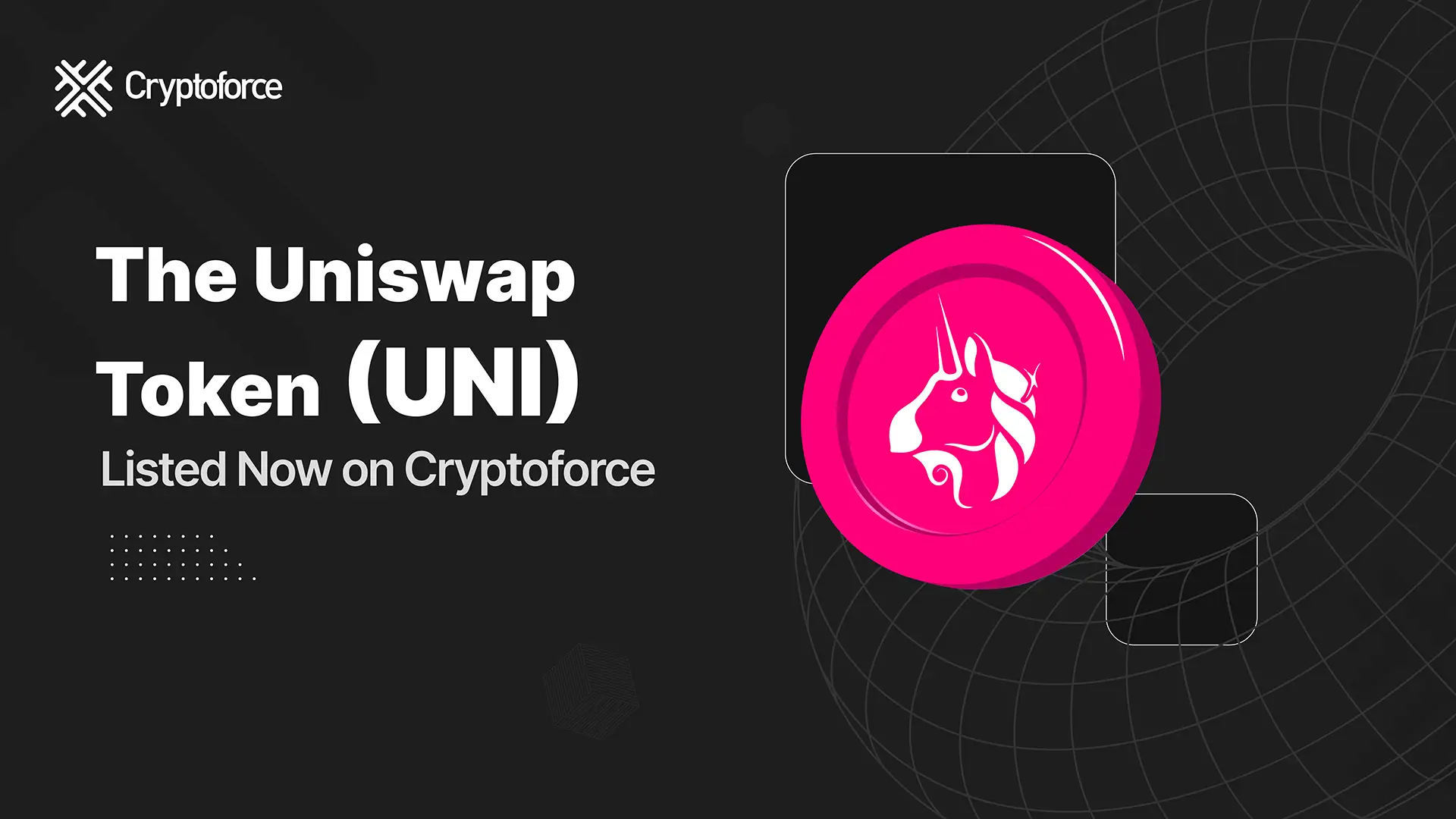What is Uniswap?

UNI is a popular altcoin among investors. However, before you Trade UNI , it is vital that you understand what you are investing in. Let's find out what's UNI and how it functions.
Uniswap is a well-known decentralized trading system, best recognized for supporting the automated trading of decentralized finance (DeFi) tokens. Launched in November 2018, Uniswap is an Automated Market Maker (AMM) that has benefited greatly from the DeFi phenomena and the subsequent increase in token trading this year
Uniswap's goal is to increase the efficiency of trading tokens compared to conventional exchanges while keeping token trading fully automated and accessible to anybody using tokens. By eliminating the flaws that plagued the earliest decentralized exchanges, Uniswap is able to increase efficiency by addressing liquidity concerns with automated solutions.
In September 2020, Uniswap took it a step further by launching its own governance token, UNI, and rewarding it to early adopters of the protocol. This increased its profit potential and gave its members more agency over its destiny, both of which are features that make decentralized organizations appealing.
As holders of UNI governance tokens, the more than 310,000 members of the Uniswap DAO have a say in the DEX's $1.6 billion treasury, its governance, and its road map. Any UNI holder can submit a proposal, but it needs at least 25,000 votes in favor to move forward. The following stage is the consensus check, in which the proposer must highlight the key changes and receive at least 50,000 yes votes. After the governance process, the proposal needs 40M yes votes to be approved.
How is Uniswap different?
Uniswap provides liquidity — and thus trading and the value that trading provides — for the DeFi sphere. This protocol, used by one of the most important AMMs in use right now, is based on the well-known formula for automated exchange (X + Y = K). Hayden Adams, Uniswap's founder, takes credit as the creator of this formula's application on the platform.
Uniswap is more than simply another decentralized cryptocurrency exchange; it also seeks to address the liquidity problems faced by platforms like EtherDelta.
The protocol incentivizes participation by lowering risk and cutting costs for all participants through the automation of market making. This technique also does away with the need for users to verify their identities before using it; thus, in theory, anybody may set up a liquidity pool for any given pair of tokens.
Uniswap claims that the UNI token was developed to officially enshrin[e] Uniswap as publicly-owned and self-sustainable infrastructure while continuing to carefully protect its indestructible and autonomous qualities.
New features such as ERC-20 pairings, price oracles, flash swaps, and more were introduced with the release of Uniswap V2 on November 2, 2018. The third major release of Uniswap, V3, became live on the network on May 5, 2021. It improved capital efficiency for liquidity providers, trader execution, and infrastructure.
How many UNI tokens are there?
Uniswap's governing token, UNI, has a total quantity of 1 billion. Over the course of four years, these will become accessible, after which Uniswap will implement a perpetual inflation rate of 2% to keep users actively engaged in the network.
Currently, tokens are distributed as follows: 60% to Uniswap community members (users), 21.51% to team members, 17.8% to investors, and 0.69% to advisers. There is a four-year wait time between the final three payouts.
The UNI token's objective is to provide community-wide participation in the protocol's evolution and advancement through shared ownership. In this way, holders of UNI tokens may take part in the governance of the Uniswap protocol and the broader ecosystem in a decentralized, trustless fashion. Token holders are incentivized to help the Uniswap ecosystem thrive due to the rising value of their tokens due to the popularity and success of Uniswap products.
A perpetual inflation rate of 2% per year for UNI tokens will also go into effect four years after the token's introduction in September 2024. This discourages inactive holders and encourages continued involvement in the Uniswap ecosystem.
Network security
UNI is the internal governance token of Uniswap, a decentralized trading platform. UNI is an ERC-20 token, which requires Ethereum to operate and is secured by Ethereum’s proof of stake consensus mechanism.
Founders
The concept of Uniswap was to get more people familiar with AMMs on Ethereum. Ethereum developer Hayden Adams is responsible for creating the new system.
Adams collaborated with Ethereum co-founder Vitalik Buterin on a number of initiatives before settling on Uniswap. The protocol was initially called Unipeg, which Buterin ultimately changed.
Adams has also claimed that one of Buterin's own blog entries served as the initial impetus for the development of the Uniswap platform. His first motivation for focusing on Ethereum came from a buddy who persuaded him to start investigating and understanding the protocol in 2017
Where can you buy UNI?
UNI is available on the licensed cryptocurrency exchange CryptoForce and several other national and international exchanges
Disclaimer: Cryptocurrencies are highly volatile and subject to market, technical, and regulatory risks. Crypto trading requires one’s own diligence, and Cryptoforce will not be responsible for any losses incurred. Any information provided here should not be regarded as Cryptoforce’s technical or financial advice